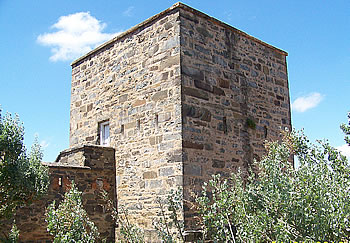Frontier Country
Three powerful nations shaped today’s Republic of South Africa : the British, the Xhosa and the Afrikaner. It was in the Eastern Cape province of South Africa that they first made contact over 200 years ago.
Where there was limited understanding between the Xhosa and European Settlers, the economic needs of both were essentially pastoral and, at first, there was no reason for conflict : it seemed that there was land enough for all and to spare. However, inevitably, conflicting demands coupled with the ignorance of each group about the other’s culture, together with differing attitudes towards land ownership, spiritual beliefs and civilisation, paved the way for conflict to fester, simmer and finally erupt.
 The first frontier war broke out in 1780 and marked the beginning of the Xhosa struggle to preserve their traditional customs and way of life. It was a struggle that was to increase in intensity when the British arrived on the scene. The Xhosa fought for one hundred years to preserve their independence and heritage, in a land of great diversity, spectacular scenery and rare beauty. And still today, this area is known as Frontier Country.
The first frontier war broke out in 1780 and marked the beginning of the Xhosa struggle to preserve their traditional customs and way of life. It was a struggle that was to increase in intensity when the British arrived on the scene. The Xhosa fought for one hundred years to preserve their independence and heritage, in a land of great diversity, spectacular scenery and rare beauty. And still today, this area is known as Frontier Country.
Now no longer the scene of conflict and strife, Frontier Country remains spectacularly beautiful. In its natural state it is one of the most diverse regions on earth. Much of the pristine indigenous flora and fauna is still very accessible, making for breath-taking views, experiences and memories.
Here is where one can experience untamed Africa at is best and view the Big 5 in malaria- and bilharzia-free reserves rich in bio-diversity. Thousands of hectares in the region are devoted to nature and game conservation, bringing with them the return of great herds of wildlife to the places where they once roamed free. Offerings are from self-drive to fully catered all inclusive game viewing and outdoor adventure packages.
Visitors can explore and visit the beautiful towns and villages the British Settlers established years ago. Quaint historical rambles trace the colourful early decades of the European colonisation of the Eastern Cape. Grahamstown, Africa’s Art Festival Capital, anchors the hinterland attractions and provides a fascinating opportunity to explore on foot.